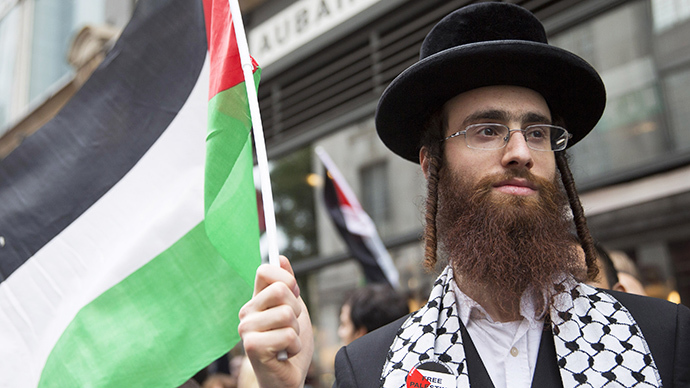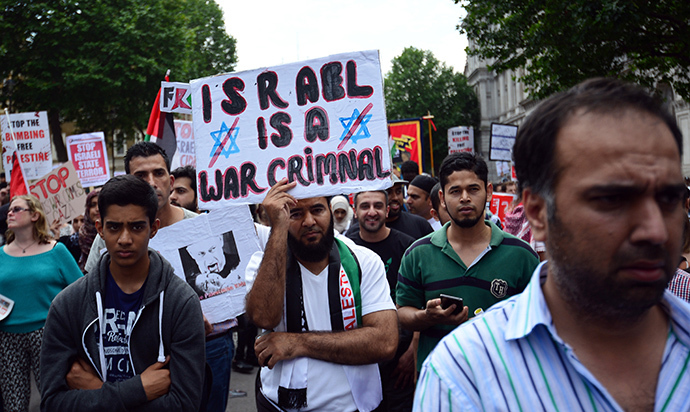80% of British Jews feel blamed for Israeli actions

Up to 80 percent of British Jews say non-Jews blame them for the Israeli government’s actions, a new study on anti-Semitism in the UK shows.
According to the Institute for Jewish Policy Research study, almost 70 percent of respondents also said they believe anti-Semitism had become more acute in Britain in the five years leading up to 2012.
It found the experience of anti-Semitism is often bound up with perceptions of the political and military decisions of the Israeli government. Publication of the survey has coincided with the Israel Defense Forces’ air and ground assault of the Gaza Strip, which has drawn tens of thousands of protestors onto the streets worldwide.

While participants in the survey do not perceive simple criticism of Israel as anti-Semitism, respondents say hostile criticism of the Jewish state is experienced as anti-Semitism, particularly when it involves calls for boycotts, divestment and sanctions, or accusations of ethnic cleansing.
One-third of those surveyed felt that non-Jews calling for boycotts of Israeli goods or products is definitely anti-Semitic, while an additional third say it is probably so. Almost half said parallels drawn between Israeli treatment of Palestinians and Nazi treatment of Jews is “definitely” anti-Semitic while over three-quarters claim to have heard the Israel/Nazi parallel in Britain at least occasionally.
The report found that for respondents: “Israel does not simply represent a place or a conflict, but is rather a fundamental component of Jewish identity.”
According to the report, Orthodox Jews are more likely to experience anti-Semitism, as are younger Jews and men. Harassment was most often confined to the Internet, while physical assaults and property vandalism were found to be far rarer.
Perpetrators of anti-Semitic acts were mostly teenagers and those with extremist Muslim views. People with left-wing views were also found to be a greater source of anti-Semitic remarks than those with right-wing views.














